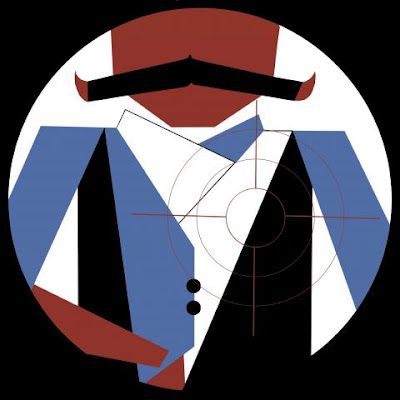Kurt Weill's German theatre works written with the expressionist playwright Georg Kaiser tend to get less exposure than Weill's collaborations with Bertolt Brecht. But Weill and Kaiser wrote three major works, the operas Der Protagonist (1926) and Der Zar lässt sich photographieren (1928), plus the musical play Der Silbersee (1933) (Weill first collaborated with Brecht in 1927 and Die Dreigroschenoper came in 1928). The first two are comic operas, and Weill intended them as a double bill, and the third is a strange hybrid of opera and play. The operas belong to the genre of Zeitoper, short, satiric pieces which comment on the times, a style which evaporated rapidly on the rise of the Nazis.
This year we have a chance to see two of Weill and Kaiser's collaborations. In the Autumn, English Touring Opera is producing The Silverlake (Der Silbersee) and tomorrow (4 May 2019) The Tsar wants his picture taken (Der Zar lässt sich photographieren) is being performed at the Bloomsbury Theatre.
The Tsar wants his picture taken features baritone Edmund Danon (Tsar), Anna Sideris (False Angele), Patricia Auchterlonie (Angele) and Joanna Harries (Leader), with full orchestra conducted by Johann Stuckenbruck. The performance is part of University College, London's (UCL) Performance Lab which combines a series of performances by artists, dancers, opera singers, stand-up comedians and UCL academics combined with a season of symposiums and discussions. So that for the opera, new light has been shed on the implications of the comic plot by academics from UCL Hebrew and Jewish Studies, and the performance will be followed by a discussion.
The opera was condemned as degenerate, which might seem strange to us today except that we are now coming to understand that Jews tended to dominate photography at the time, so that the contemporary audience would understand the comedy in an entirely different way to a modern one. Amazingly, the orchestra is using the original 1927 parts, complete with vintage graffiti!
Other performances as part of Performance Lab include Muso from Impropera (7 May 2019), the improvising opera company, whose performance will be inspired by objects from the UCL collections!
Further information from the UCL Culture website, and the Bloomsbury Theatre website.
Friday, 3 May 2019
Understanding why the Tsar wanted his picture taken: Kurt Weill & Georg Kaiser's opera in a rare revival
Labels:
preview
Subscribe to:
Post Comments (Atom)
Popular Posts this month
-
Having recorded a disc of motets by Francois Couperin (see my review ), Edward Higginbottom and the choir of New College Oxford have turne...
-
Carl Heinrich Graun Carl Heinrich Graun: opera arias; Valer Sabadus, {oh!} Orkiestra, Martyna Pastuszka; Bayreuth Baroque Opera Festival at ...
-
Handel: Ariodante - Royal Opera House (Photo: Bill Knight/RBO) Handel's Ariodante; Jacquelyn Stucker, Emily D'Angelo, Christophe D...
-
David Allinson and The Renaissance Singers at Holy Sepulchre London, The Renaissance Singers is a chamber choir with a difference. One of Lo...
-
Weber: Der Freischütz - Theatre de Champs Elysees - Photo Julien Benhamou Carl Maria von Weber Der Freischütz ; Stanislas de Barbeyra...
-
The 77th edition of the Aldeburgh Festival comes round in flaming June while marking the 50th anniversary of Benjamin Britten’s death and, t...
-
Gimnazija Kranj Symphony Orchestra I get all sorts of mail, people sending my information on concerts and recordings. Everything gets gl...
-
The Stationers' Hall where Purcell's Hail, Bright Cecilia was premiered in 1692 Humfrey: O Lord my God , Blow: I was glad , Purcell:...
-
Opera Up-Close - Mozart: Don Giovanni - Evan Lazdowski as Leporello and Erik Tofte as Giovanni - Palm Beach Opera (Photo: Kelly O'Brie...
-
The Forbidden Fruit : organ music by John Lugge; William Whitehead; Editions Hortus Reviewed 15 December 2025 Using a French organ that prov...










%20as%20Leporello%20and%20Erik%20Tofte%20(back%20to%20camera%20in%20garnet%20shirt)%20as%20Giovanni%20-%20Don%20Giovanni.jpg)

No comments:
Post a Comment